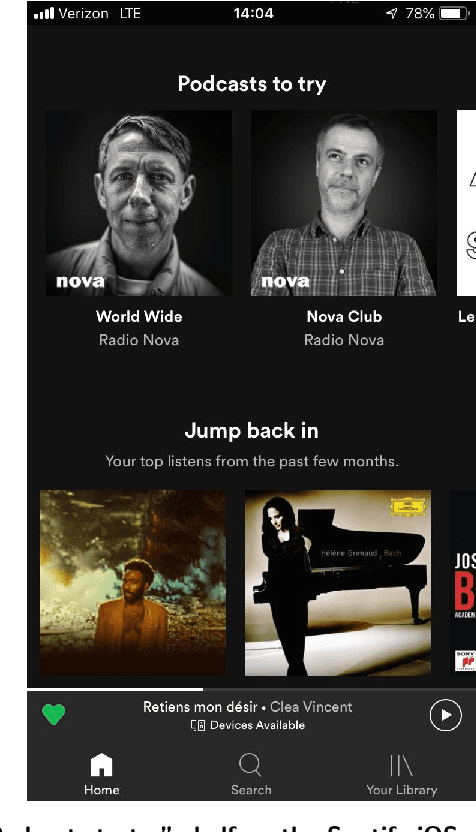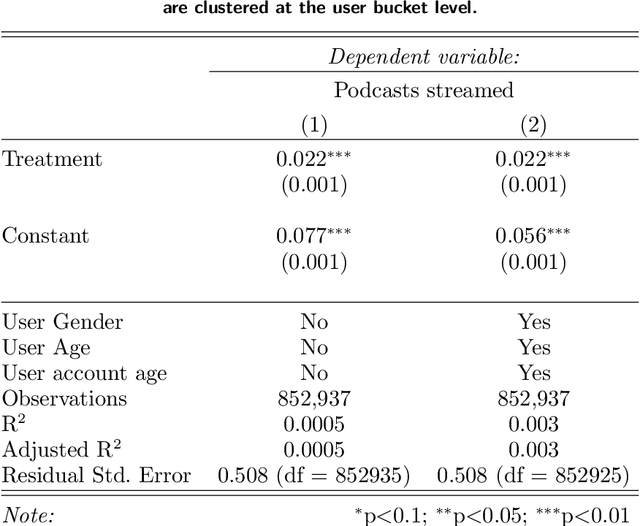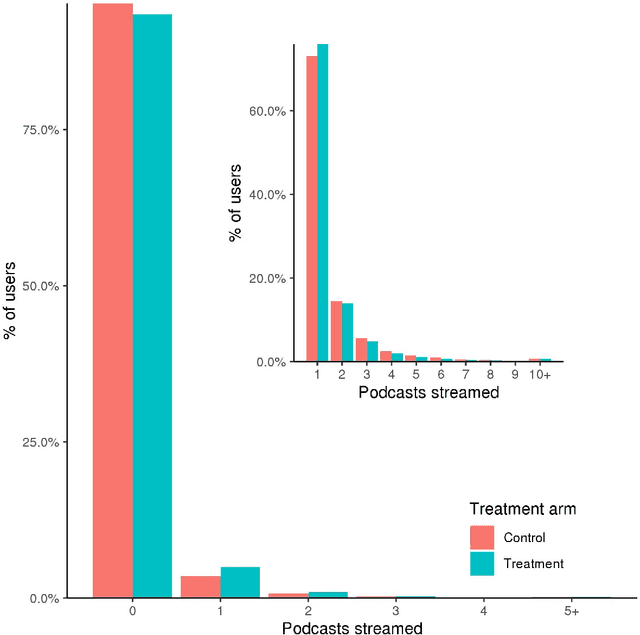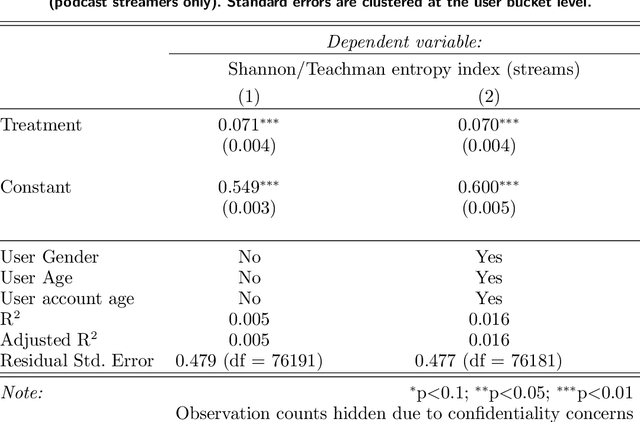The Engagement-Diversity Connection: Evidence from a Field Experiment on Spotify
Paper and Code
Mar 17, 2020



It remains unknown whether personalized recommendations increase or decrease the diversity of content people consume. We present results from a randomized field experiment on Spotify testing the effect of personalized recommendations on consumption diversity. In the experiment, both control and treatment users were given podcast recommendations, with the sole aim of increasing podcast consumption. Treatment users' recommendations were personalized based on their music listening history, whereas control users were recommended popular podcasts among users in their demographic group. We find that, on average, the treatment increased podcast streams by 28.90%. However, the treatment also decreased the average individual-level diversity of podcast streams by 11.51%, and increased the aggregate diversity of podcast streams by 5.96%, indicating that personalized recommendations have the potential to create patterns of consumption that are homogenous within and diverse across users, a pattern reflecting Balkanization. Our results provide evidence of an "engagement-diversity trade-off" when recommendations are optimized solely to drive consumption: while personalized recommendations increase user engagement, they also affect the diversity of consumed content. This shift in consumption diversity can affect user retention and lifetime value, and impact the optimal strategy for content producers. We also observe evidence that our treatment affected streams from sections of Spotify's app not directly affected by the experiment, suggesting that exposure to personalized recommendations can affect the content that users consume organically. We believe these findings highlight the need for academics and practitioners to continue investing in personalization methods that explicitly take into account the diversity of content recommended.
 Add to Chrome
Add to Chrome Add to Firefox
Add to Firefox Add to Edge
Add to Edge